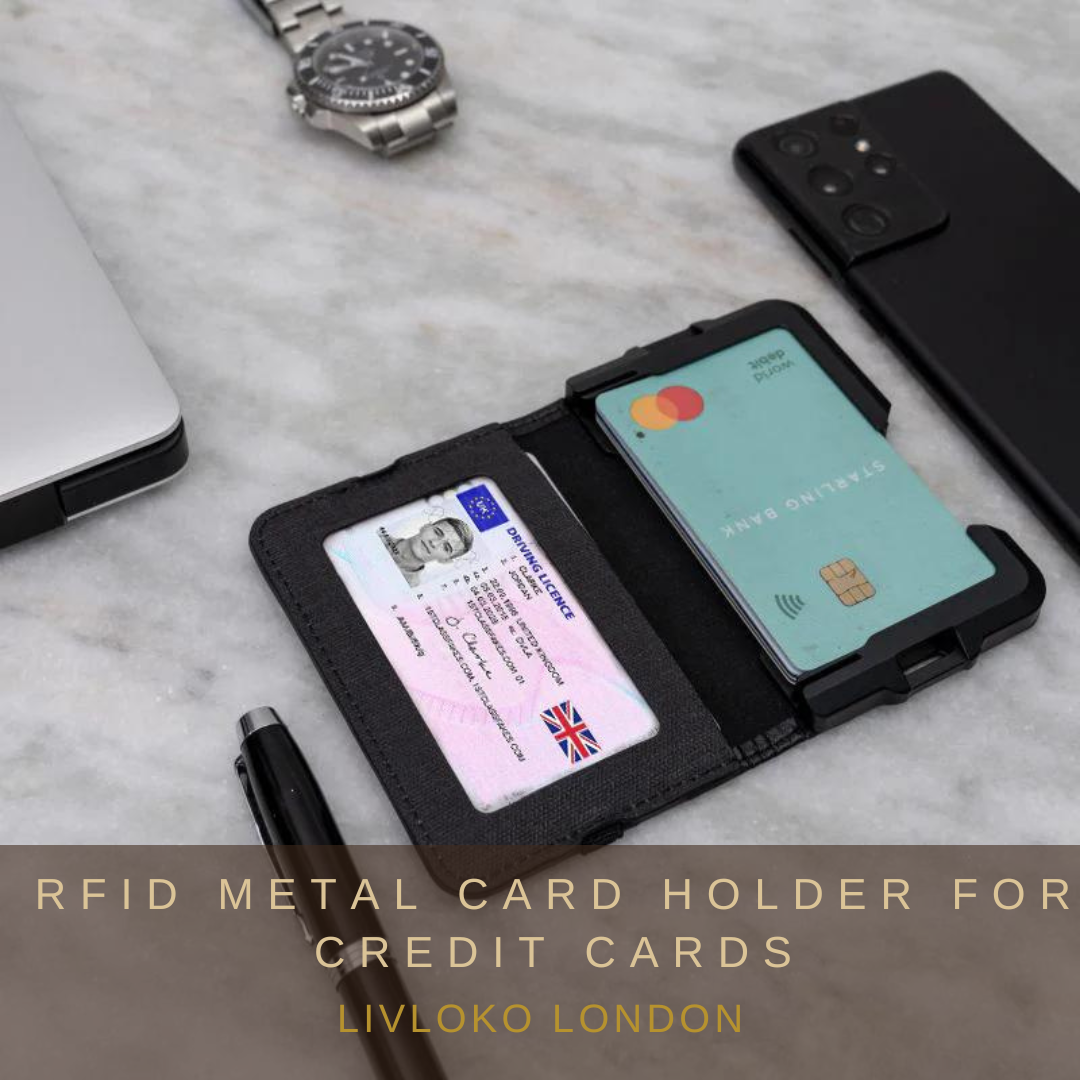
Can metal card holder block RFID?
An RFID metal card holder for credit cards is a small, typically metallic case designed to hold credit cards, IDs, or other similar items. What sets it apart from a regular card holder is its built-in RFID-blocking technology. RFID (Radio Frequency Identification) is a technology used to store and transmit data wirelessly through electromagnetic fields. Some credit cards, IDs, and passports come with RFID chips embedded in them to enable contactless transactions or for identification purposes.
However, these RFID chips can be vulnerable to unauthorized scanning, potentially leading to identity theft or unauthorized transactions. RFID-blocking technology prevents these chips from being scanned by unauthorized devices, thereby protecting your sensitive information. The metal construction of the card holder adds durability and a sleek, modern look, making it a popular choice for those who want both style and security for their cards.
RFID metal card holders offer several benefits:
The primary benefit of an RFID metal card holder is its ability to block RFID signals. This prevents unauthorized individuals from scanning your credit cards, IDs, or passports remotely, protecting your sensitive information from theft or fraud. By using RFID-blocking technology, metal card holders provide an additional layer of security beyond traditional card wallets or holders. This can give you peace of mind knowing that your personal and financial information is safeguarded against digital pickpocketing. Metal card holders are typically more durable compared to plastic or fabric alternatives. The metal construction provides sturdy protection for your cards, helping to prevent bending, breaking, or damage from everyday wear and tear.
Many RFID metal card holders feature sleek and minimalist designs, making them both functional and fashionable accessories. They come in various finishes and styles to suit different preferences, adding a touch of sophistication to your everyday carry. Despite their durable construction, RFID metal card holders are usually compact and lightweight, making them convenient to carry in pockets, purses, or bags. Their slim profiles allow for easy access to your cards while minimizing bulk. Most metal card holders have multiple slots or compartments, providing efficient organization for your cards, IDs, and other essentials. This helps you keep everything neatly organized and easily accessible whenever you need them. RFID metal card holders offer a combination of security, durability, style, and functionality, making them a popular choice for individuals looking to protect their sensitive information while adding a touch of elegance to their everyday carry.
Do RFID credit card holders work?
Yes, RFID credit card holders do work in blocking RFID signals and protecting your sensitive information. RFID-blocking technology typically consists of a material, such as metal or a special fabric, that interferes with the radio waves used by RFID scanners to read information from RFID chips. When your cards are stored in an RFID-blocking holder, the material creates a barrier that prevents these radio waves from reaching the RFID chips in your cards. As a result, the cards cannot be scanned or read by unauthorized devices. Numerous tests and studies have confirmed the effectiveness of RFID-blocking technology in preventing unauthorized scanning of RFID-enabled cards. However, it's important to note that while RFID-blocking holders can significantly reduce the risk of RFID skimming, they may not provide 100% protection in all situations. Some advanced or specialized scanning techniques might still be able to penetrate RFID-blocking materials, although such instances are rare and generally require sophisticated equipment. RFID credit card holders are a practical and effective way to enhance the security of your sensitive information and minimize the risk of RFID-related fraud or identity theft.
Is RFID safe for health?
RFID (Radio Frequency Identification) technology is generally considered safe for health when used in accordance with established regulations and guidelines. The electromagnetic radiation emitted by RFID devices is typically very low power and falls within the non-ionizing radiation category, which means it does not have enough energy to ionize atoms or molecules and cause damage to cells in the body. RFID technology is widely used in various applications, including contactless payment systems, inventory tracking, access control, and asset management. Millions of people interact with RFID-enabled devices daily without experiencing any adverse health effects.
The risk of potential health effects from RFID devices is generally low, especially for brief exposures at typical distances. However, prolonged exposure at close range to high-powered RFID equipment may warrant closer attention to safety measures. Some individuals may be more sensitive to electromagnetic fields or have underlying health conditions that could potentially be aggravated by RF radiation. In such cases, it's advisable to consult with a healthcare professional for personalized advice. The consensus among regulatory agencies and health organizations is that RFID technology is safe for most people when used as intended and in accordance with established safety standards. However, ongoing research and monitoring are essential to ensure that safety guidelines remain up-to-date as technology advances and new applications emerge.
Is RFID wallet expensive?
The cost of RFID wallets can vary depending on several factors, including the brand, materials used, design, and additional features such as capacity, craftsmanship, and RFID-blocking technology. Basic RFID wallets made from materials like fabric or synthetic materials tend to be more affordable, with prices ranging from $10 to $30 USD. These wallets usually offer RFID protection but may not have additional features or premium construction.
These wallets may feature luxury finishes, handcrafted details, and advanced RFID-blocking technology. They often come from well-known brands or designers, commanding a higher price due to their quality and craftsmanship. Ultimately, the price of an RFID wallet depends on your budget, preferences, and the level of quality and features you desire. While some RFID wallets may be more expensive upfront, they can offer long-term value and protection for your cards and personal information. It's essential to consider factors such as durability, functionality, and security when choosing an RFID wallet to ensure it meets your needs and provides good value for money.
